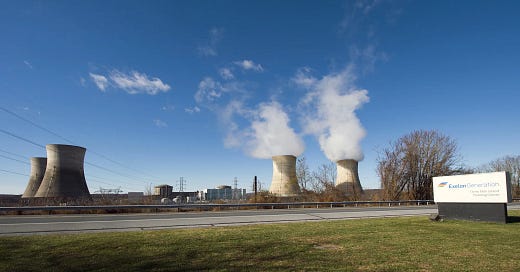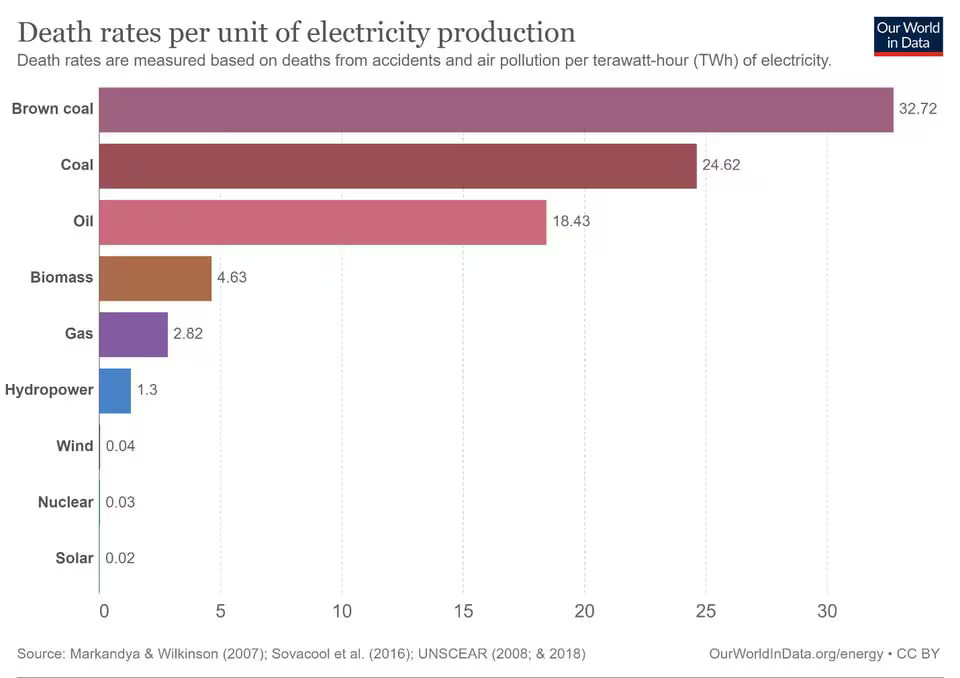On March 28th, 1979, a movie titled The China Syndrome was released. Starring Jane Fonda and Michael Douglas, it capitalized, after a fashion, on the disaster movie fad of the 1970s. That fad offered us such as Airport and its sequels, Earthquake, The Towering Inferno, The Poseidon Adventure, The Swarm, Meteor, and more. Such movies were often longer on drama than science, and gave the public ill-informed views on various subjects.
Thrills sell, whether they be fear of catastrophe, the supernatural, or simply good old-fashioned good-guy vs a zillion bad guys. Hollywood is in the business of entertainment, not information, so it'd be wrong to harsh on the writers and producers for taking license with reality. The China Syndrome (TCS) wasn't that bad, in that regard, as it included a few plot points that mirrored some real-life occurrences, but it served to fill the public with an exaggerated fear of nuclear power, and I agree with comments from industry that it was a "character assassination." In typical Hollywood fashion, there exist a tiny smattering of moral people standing against powerful sociopaths who care not one whit for humanity.
The movie was also, as far as America's progress and prosperity was concerned, incredibly ill-timed.
Twelve days after its release, an accident occurred at the Three Mile Island (TMI) nuclear power plant in Pennsylvania. The accident was about as bad as could be in a Western-design reactor, a partial melt-down of Unit 2, accompanied by a small release of radioactive gas.
Of course, that freaked everyone out, and it did enormous damage to the reputation of the nuclear industry. It also substantially slowed the advance of nuclear power in America.
That the amount of radiation released was trivial, in the most literal sense, mattered not. That a near-worst-case accident didn’t actually harm anyone was and remains irrelevant to millions of nuclear-phobes. Even today, when there are mountains of work explaining just how insignificant the release was, way too many people regurgitate "But... Three Mile Island!" whenever someone suggests to them that the path to a clean and green energy future is nuclear, not wind or solar.
Emotion is a powerful force, and it has had its effect on nuclear power for decades.
But, emotion isn't the most powerful force out there. Market forces, aka money/self-interest, eventually crack everything else.
And lo, and behold, the massive energy demands of the booming artificial intelligence industry - something I blogged about this past spring, are having their say.
Microsoft has entered into a deal with Constellation Energy to recommission Three Mile Island's Unit 1, which was not involved in the 1979 accident and was only shut down five years ago, when many still had delusions that wind and solar were the way forward.
This is, I say with confidence, a sign that momentum is building behind nuclear power. With the Wall Street Journal reporting that energy demands are growing faster than "renewables," many people in positions of private power are figuring out that their companies cannot be sufficiently served by windmills and solar panels. The intermittency, the storage problem, the resource problem, the unfriendly governments problem, the land use problem, the growing public skepticism, and more elements of what I dubbed Wind and Solar and Battery Idiocy (WASABI) are piercing the groupthink and echo chambers that accepted the current administration's "if you mandate it, it will happen" pushing of a string.
Here's something to keep in mind: the Three Mile Island accident was about as bad as could happen in a Western-design reactor, and not a single person died from that radiation release. Statistically, no one even got sick from it. The max measurement, just outside the plant, was 100 millirem, and the average citizen in the area got a bit under 2 millirem. For reference, on average, each of us gets about 620 millirem from natural background radiation each year. If you lived in Harrisburg and spent a week in Manhattan, you’d 2 extra millirem during that stay. You can get that much that from just one set of films taken at the dentist. Take a flight from NY to LA, and you get 3.5 millirem radiation. Eat a banana a day for a year, and you get about 3.5 millirem.
And, contrary to what some ignorant-Luddite fear mongers would have you believe, low levels of radiation exposure aren’t a big deal. In fact, there is some research suggesting that some is actually good for the body.
Fukushima, which was a different sort of disaster, had similarly trivial impact. Only one person died from radiation, and that was a decade later. Compare that to the hunded-plus annual domestic mining accident deaths, or to the fifteen thousand annual global mining accident deaths. Compare that to the thousands who die from particulate pollution every year in America alone, pollution significantly attributable to coal burning. Nuclear power saves lives.
It's hard to say how much impact the coincidence of TCS and TMI had on the nuclear power industry. The TMI accident alone slowed the adoption of nuclear power in the US for certain, but given how fearful of things we don't understand humans are, the movie, I am certain, made things significantly worse.
Imagine if America had gone France's route and built enough nuclear plants to power most of the nation. The impact on global politics alone would have been vast and in the West's favor. It's not too late to re-pursue that, and the private sector is likely done waiting for the government to realize the WASABI folly.
The other big obstacle is public ignorance, born of misinformation and fear. Indeed, the biggest anti-nuclear activists are oftentimes the most ill-informed and illogical people you'll ever meet, and that's before we dip into the subset that simply hate human progress and want us to go back to subsistence living. After 90% of us die off. To "save the planet."
The future is nuclear. And that's a good thing.
A footnote, because not enough will click through to my Dunking on Nuclear Power post. Other knee-jerk responses to nuclear power include "But... Chernobyl!," "But, nuclear waste!," and "But, meltdown!"
Chernobyl could not happen in the West, because even the most moronic Western leaders would never think of building something as recklessly dismissive of public safety as the open-air Chernobyl design. Those socialists who purported to care about people more than capitalists didn't give a flying rat's ass about safety.
Nuclear waste management is well understood, and would be even less of an issue had it not been for a spectacular bit of NIMBYism by Senator Harry Reid, who single-handedly bollixed the Yucca Mountain facility in Nevada. Nuclear waste is also a commercial opportunity. We’ve had the tech to reuse it for decades, and new technology makes it even more useful and valuable. In short, it’s not a problem.
There are multiple modern reactor designs that cannot melt down TMI-style, because physics. Put simply, a reactor makes heat by setting conditions for nuclear fission to occur. Those conditions include "moderating" the speed of the neutrons released by fission so that they can be captured by other nuclei, rather than bouncing off. If the moderator stops moderating, the fission that creates the heat stops as well. If your moderator is the same as your coolant, a cooling failure makes the reactor simply stop. There are other variants of this idea, which is dubbed passive nuclear safety, or "fail-safe." But, even apart from these, TMI proved out the concept of a containment vessel, a feet-thick reinforced concrete shell that is meant to keep things inside even if the worst happens.
For those who wonder "what if they 9/11 a nuclear plant by flying a plane into it?," of course that's been thought of (as has everything else the average joe might come up with). Guess what? Plane turns into a stain on the concrete.
Finally, if you want to know more about the benefits of nuclear power, I highly recommend the 2013 documentary Pandora’s Promise.
A postscript to the footnote. This bit just dropped on YouTube.






Imagine if we hadn't derailed nuclear power in the 70s with that stupid movie, where we'd be today after 50 years of intensive development of this technology. Modern, modular, self-contained, failsafe, totally secure mini-reactors would dot the landscape - no more high power transmission lines, negligible transmission loss, no power outages during storms, fuel recycling on 10-year intervals - and MUCH lower electricity costs. But we wouldn't have stopped there, of course. Because money follows things we use: research and development into micro-reactors would place the source of power wherever it is used - literally "at home" and powering your buildings at work. And beyond - with direct induction technology advancements, power would be supplied at the point of use - built into electricity-consuming devices themselves, no need for electrical wiring! No - we're not on the verge of this today, far from it - but we might have been. But for that stupid movie...
Nuclear power makes a lot of sense but don't you still have to store the waste for thousands of years? This is a honest question not an attack on going with nuclear power plants.